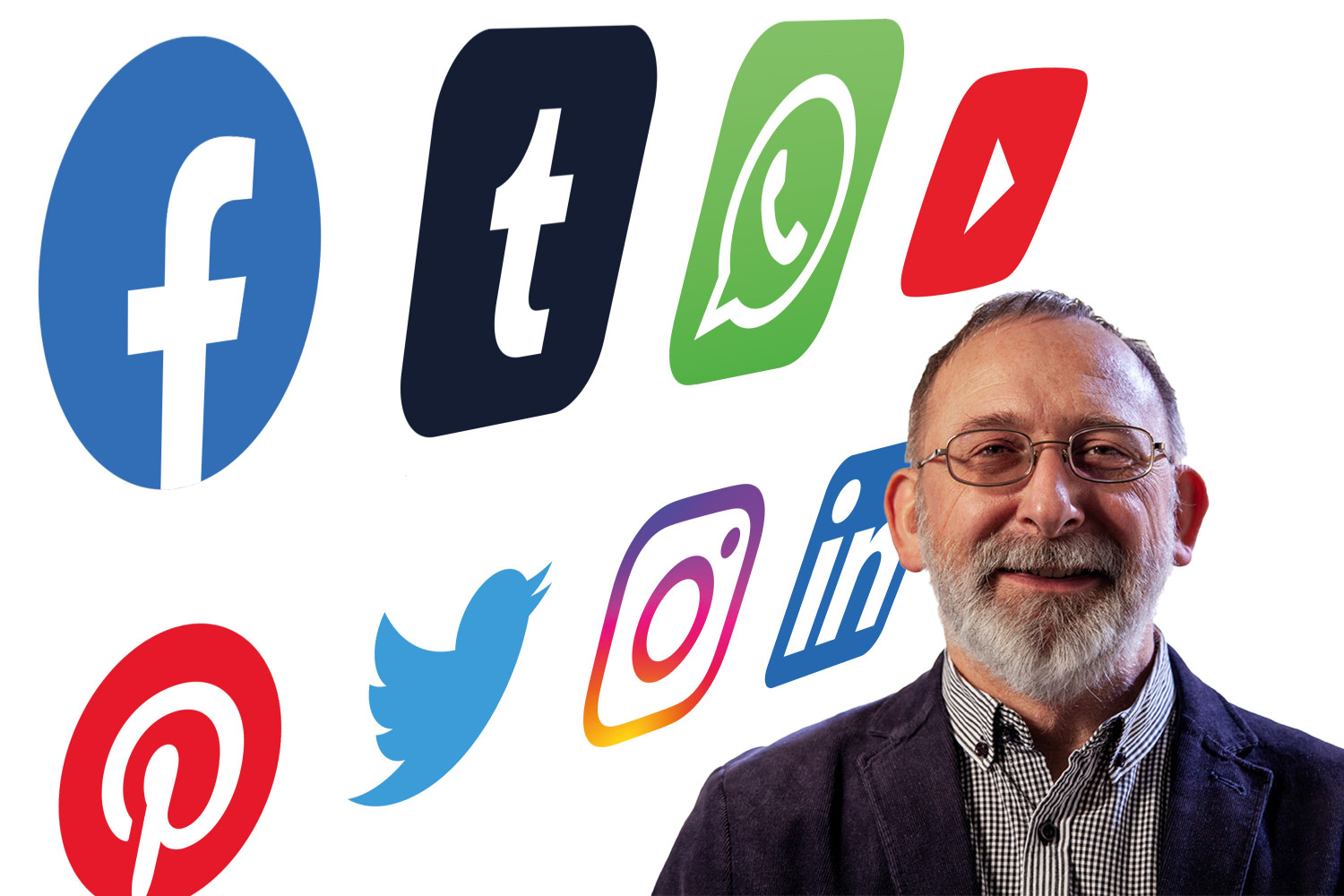One of the blessings of the Covid pandemic was that it inspired or forced a lot of people, churches, employers and oth ers to take our online potential more seriously. Zoom and Teams software was rolled out to us staff in Lichfield Diocese in a matter of days at the start of the first lockdown, and we’ve appreciated the flexibility it offers as well as some of the downsides. Many churches too found new ways to keep in touch, whether with services streamed on YouTube or more interactively via WhatsApp groups, Facebook pages, Twitter, Instagram and the rest. Most will have seen occasions where harmony vanishes and tempers flare as the feeling of anonymity leads to the irrepressible urge to win an argument and put the internet right. We might even have added fuel to the fire. Or we might have taken umbrage, blocking the rogue or even taking ourselves offline.
 Humans have been ever thus. We see it this month as we read the Gospel records of Good Friday. Luke writes that “The people stood watching… the rulers sneered… the soldiers mocked… the criminal hurled insults” (Luke chapter 23). Pilate was perhaps the shrewdest of the characters – as a Roman governor tired of the squabbling between the Jewish leaders and upstart preacher from Galilee, he had a sign nailed above one of the crucified, saying ‘Jesus of Nazareth, the King of the Jews’. There’s a good chance he believed it to be true; but having the sign added was perhaps also designed to troll the Jewish leaders after reluctantly giving them what they wanted to keep the peace. The predictable flame-war followed. An academic might describe this as post-modern irony; a teenager would add an eye-roll. There was some ambiguity in it, and people would talk. The priests tried to ‘correct’ the Roman governor. There’s no affirmation in the Gospels that any of those people would join Jesus in heaven. Just the second criminal crucified next to Jesus, who spoke plainly, admitted his own failings, expressing himself truthfully and kindly.
Humans have been ever thus. We see it this month as we read the Gospel records of Good Friday. Luke writes that “The people stood watching… the rulers sneered… the soldiers mocked… the criminal hurled insults” (Luke chapter 23). Pilate was perhaps the shrewdest of the characters – as a Roman governor tired of the squabbling between the Jewish leaders and upstart preacher from Galilee, he had a sign nailed above one of the crucified, saying ‘Jesus of Nazareth, the King of the Jews’. There’s a good chance he believed it to be true; but having the sign added was perhaps also designed to troll the Jewish leaders after reluctantly giving them what they wanted to keep the peace. The predictable flame-war followed. An academic might describe this as post-modern irony; a teenager would add an eye-roll. There was some ambiguity in it, and people would talk. The priests tried to ‘correct’ the Roman governor. There’s no affirmation in the Gospels that any of those people would join Jesus in heaven. Just the second criminal crucified next to Jesus, who spoke plainly, admitted his own failings, expressing himself truthfully and kindly.
I’ve long held, tongue-in-cheek, to my belief in Bananarama Theology – sadly, most people reading this will be old enough to remember their hit, ‘It ain’t what you do, it’s the way that you do it – that’s what gets results’. The Church of England might agree, in other words. In 2019 it launched its Digital Charter and social media guidelines with the hope of tackling offensive behaviour and encouraging a positive atmosphere for online conversations. It asks us to treat online conversations the same way we should face-to-face – with truth, kindness, welcome, as good witnesses, togetherness and alert to safeguarding issues. It’s well worth taking a moment to read at www.churchofengland.org/charter before joining your local community, parish and our diocese online.
Simon Jones is Lichfield Diocese’s Creative Media Producer,
with duties managing our website, social media and video production.
You can join conversations (nicely!) with others in and linked to the diocese online at facebook.com/groups/DioceseOfLichfield, twitter.com/Lichfield_CofE, instagram.com/lichfielddiocese/
and youtube.com/@LichfieldDiocese.